20 March 2025
How to set up a business in Spain: What international companies need to know
Spain is one of Europe’s most attractive destinations for international businesses. Its strategic location, talented workforce, and vibrant economy offer numerous opportunities for companies looking to expand internationally. However, setting up a business in Spain involves handling a range of legal, administrative, and tax requirements. For international companies, the process can seem complex and time-consuming.
This guide’ll provide a detailed overview of the steps required to establish a legal presence in Spain. From choosing the right business structure to understanding tax and employment obligations, we’ll cover everything you need to know to register a company in Spain successfully. Besides, we’ll discuss how a Spanish Employer of Record (EOR) can offer a simplified alternative for businesses that want to start operations quickly without creating a local entity.
Choosing the right business structure in Spain
International companies have several legal entity options when entering the Spanish market. Understanding the differences between these structures is critical to selecting the right one for your goals.
Sociedad Limitada (SL) – private limited company:
- A popular choice for small- and medium-sized businesses.
- Requires a minimum share capital of €3,000.
- Shareholder liability is limited to the amount of their investment.
- Simple setup process and moderate ongoing administrative requirements.
Sociedad Anónima (SA) – public limited company:
- Suitable for larger businesses and those planning to raise funds.
- Requires a minimum share capital of €60,000, with 25% paid at incorporation.
- More complex reporting and administrative obligations.
- Provides greater flexibility for issuing shares and accessing capital markets.
Branch office (Sucursal):
- Operates as an extension of a foreign parent company.
- No minimum share capital required.
- All liabilities are borne by the parent company.
- Requires registration with local authorities and adherence to Spanish regulations.
Representative office:
- Limited to non-commercial activities such as market research or liaison.
- Cannot conduct direct business operations or generate revenue in Spain.
- A simple setup but not suitable for companies planning to sell products or services.
Selecting the proper business structure is crucial to establishing a successful presence in Spain. You’ll set a strong foundation for future growth and compliance by aligning the entity type with your business goals.
7 Steps to register a business in Spain
When setting up a business in Spain, following the correct registration process is essential to ensure compliance with local regulations. Registering a company involves multiple administrative steps, from securing a unique company name to completing tax and social security registrations.
Below, we outline the key steps you need to take to establish your company in Spain.
1. Obtain a company name certificate: Reserve your desired company name through the Commercial Registry (Registro Mercantil).
2. Secure a NIE (Número de Identificación de Extranjero): Required for foreign shareholders or directors to carry out any legal or financial activities.
3. Prepare company statutes (bylaws): Draft these documents outlining the company’s purpose, structure, and governance, and have them signed before a notary.
4. Open a business bank account: Deposit the minimum share capital (if applicable) and obtain a bank certificate.
5. Register with the Spanish Tax Authority (Agencia Tributaria): Obtain a CIF (Tax Identification Code) to enable tax reporting and compliance.
6. Register with Social Security (Seguridad Social): Necessary for employing staff and paying social security contributions.
7. Complete commercial registration and licensing: Submit all documents to the Commercial Registry and obtain any required operating licenses.
Given the complexity of local regulations, it can be helpful to work with a local lawyer or Employer of Record to simplify the registration process and ensure compliance.
Corporate tax and accounting requirements
In Spain, the standard corporate tax rate is 25%, which applies to most companies. However, newly formed businesses may qualify for a reduced rate during their initial years of operation, depending on their size and circumstances. This makes it essential to understand the specific tax bracket your company falls under and ensure you meet all tax payment deadlines.
VAT registration and compliance
Businesses in Spain are required to register for VAT (known as IVA) if they sell goods or services subject to this tax. The standard VAT rate is 21%, but reduced rates of 10% and 4% apply to certain items and services.
Once registered, companies must regularly file VAT returns—usually on a quarterly basis—detailing the amount of VAT collected from customers and paid to suppliers. Ensuring accurate record-keeping and timely submissions is critical to avoid penalties or fines.
Annual accounting and reporting obligations
Spanish law requires companies to maintain comprehensive financial records and submit annual accounts to the Commercial Registry. These accounts must accurately reflect all revenue, expenses, assets, and liabilities.
In addition to the annual financial statements, corporations must file corporate income tax returns and provide detailed information on their VAT filings, payroll taxes, and other statutory contributions.
Large companies meeting specific revenue or asset thresholds may also need to undergo external audits to confirm that their financial statements comply with Spanish accounting standards.
Ensuring compliance
To stay compliant with Spanish financial regulations, companies should establish robust accounting practices, implement reliable payroll systems, and ensure that all tax filings are accurate and on time.
Working with a qualified tax advisor or accounting firm familiar with Spanish laws can help identify potential compliance risks and ensure that your company adheres to all legal requirements.
By staying informed about changes in tax laws, maintaining detailed financial records, and submitting all necessary reports within the required timeframes, businesses can avoid costly penalties and maintain smooth operations in Spain.
Employment and payroll compliance
In Spain, employers must adhere to stringent labour laws and meet specific obligations to ensure compliance. Employers are required to maintain comprehensive employment contracts, respect statutory working hours, and provide mandatory benefits such as paid leave, sick leave, and maternity or paternity leave.
Social security contributions and income tax (IRPF) withholding must also be accurately calculated and submitted on time. The cost of hiring employees goes beyond salary, as employers must account for these contributions, benefits, and taxes, which can significantly increase overall labour costs.
Ensuring payroll compliance involves more than just following tax and labour regulations. Employers must stay up to date on changes to Spanish legislation, maintain accurate payroll records, and meet reporting deadlines.
Failure to comply with these regulations can result in fines, legal disputes, and reputational damage. Companies must therefore adopt robust payroll management practices, verify all employment documentation, and consider seeking professional advice to reduce compliance risks and maintain smooth operations in Spain.
How an Employer of Record can simplify business expansion in Spain
A Spanish Employer of Record (EOR) can be an ideal solution for businesses that want to expand quickly without establishing a legal entity. An EOR acts as the legal employer on behalf of the foreign company, managing compliance, payroll, and tax obligations.
There are numerous benefits of using EOR. You can enter the market fast. Start operations and hire staff without waiting for company registration to be completed. You can reduce administrative burden by delegating payroll processing, social security contributions, and tax compliance to the EOR. Get compliance assurance.
Ensure that employment contracts, payroll filings, and employee benefits comply with Spanish labour laws. Moreover, you get flexibility for expansion, you can scale your workforce up or down without needing to manage the complexities of a legal entity.
For example, an Australian entrepreneur wanted to expand his tech consulting business into Spain, but he faced challenges navigating the country’s legal and tax system. Establishing a legal entity seemed costly and complex, and he wasn’t familiar with Spanish employment regulations.
By partnering with a Spanish Employer of Record, he was able to hire local employees compliantly and handle payroll, taxes, and social security without setting up a company. The EOR provided the necessary legal framework and compliance expertise, enabling the entrepreneur to focus on growing his client base while staying on the right side of Spanish law.
Start your business in Spain
Setting up a business in Spain involves selecting the right legal structure, completing the necessary registration steps, and ensuring compliance with local tax and employment regulations. While the process can be complex, choosing the appropriate approach and leveraging expert support can make it more manageable.
Contact us if you’re a company looking for a simpler alternative. An Employer of Record offers a fast and compliant way to hire employees in Spain without establishing a legal entity. By exploring EOR solutions, businesses can focus on growth and operations while ensuring compliance and reducing administrative overhead.



